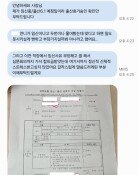Ethics in disaster news coverage
Survival can be a heavy burden of guilt and a cruel punishment in a large fatal accident to survivors as was the case of the vice principal who committed suicide for guilt about his survival after the ferry disaster. The survivors here include students who were rescued and the family members of passengers who died or went missing. The message of yellow ribbons with which people hope for survivors return and pray for the dead is Sorry for not having protected you.
Parents would not have let their child get on the ferry Sewol, should they have known the identity of the ominously-named ferry and the reality of the shipping industry. Except for the maritime mafia, few would have known the lowdown of the operation. In other words, there was no way to protect the students.
A man-made disaster often leaves a deeper scar and a bigger side effect than a natural disaster. People readily accept a natural disaster as a fate while a man-made disaster results in a complex mix of feelings such as resentment, anger, regret and repentance.
Reports on this incident were pretty cruel to the survivors, however. Journalists might have felt an obligation to report the shock and sadness and deliver truths promptly to viewers. Some journalists, however, violated almost all of the rules on disaster coverage created by Journalists Association of Korea. The rules were not made to discourage the media and disrupt their media coverage. They were created to prevent adverse effects and enable journalists to play the right roles as they saw many problems of excessive media coverage in times of disaster.
The media is supposed to filter out rumors in a chaotic situation. MBN, a general programming station, however, released an interview of Hong Ga-hye, a 26-year-old woman who claims that she is a private diver. She said in an interview that she wanted to rescue people in the ferry who were said to be alive but the coast guard prevented her from getting into the sea. This made many families irritated and aggravated the peoples mistrust of the government. JTBC, another general programming station, asked a student, Do you know that your friend died? and aired a one-sided argument of Lee Jong-in, CEO of Alpha Marine & Underwater Technical Service who claimed that the coast guard was preventing him from entering into the sea with a diving bell, a device that allows a diver to make rescue efforts for 20 consecutive hours. This made many people angry. Whenever this happens, people get outraged by the manipulation of the media.
The rules on disaster coverage were completely ignored. According to the rules, journalists should refrain from filming the victims closely and showing provocative scenes, prevent the spread of rumors, not cover unverified information, try not to reveal the survivors and victims identification, and focus on reduce their psychological and mental suffering. Wouldnt it be painful if many Korean media are like the ferry operators who completely ignored safety rules?
We should quietly help the parents who lost their child overcome sadness and anger and go back to their normal life, a life with laughter, for their other child and for their child who died to rest in peace. Our society should continue taking care of the students who happened to be survivors so that they do not blame themselves, not be overwhelmed by anger, and embrace their friends who left this world ahead of them by focusing on their own life. The survivors did not survive at the price of someones death. Korea needs to get rid of the peoples insensitivity around safety, which is the cause of this incident, and root out the complicated collusion between government officials and companies in order to sincerely apologize to the dead and save those who are alive. Hopefully, the media can play the role of watchmen.
Headline News
- N. Korea launches cyberattacks on S. Korea's defense companies
- Major university hospital professors consider a day off each week
- Italy suffers from fiscal deficits from ‘Super Bonus’ scheme
- Inter Milan secures 20th Serie A title, surpassing AC Milan
- Ruling and opposition prioritize spending amid tax revenue shortfalls







